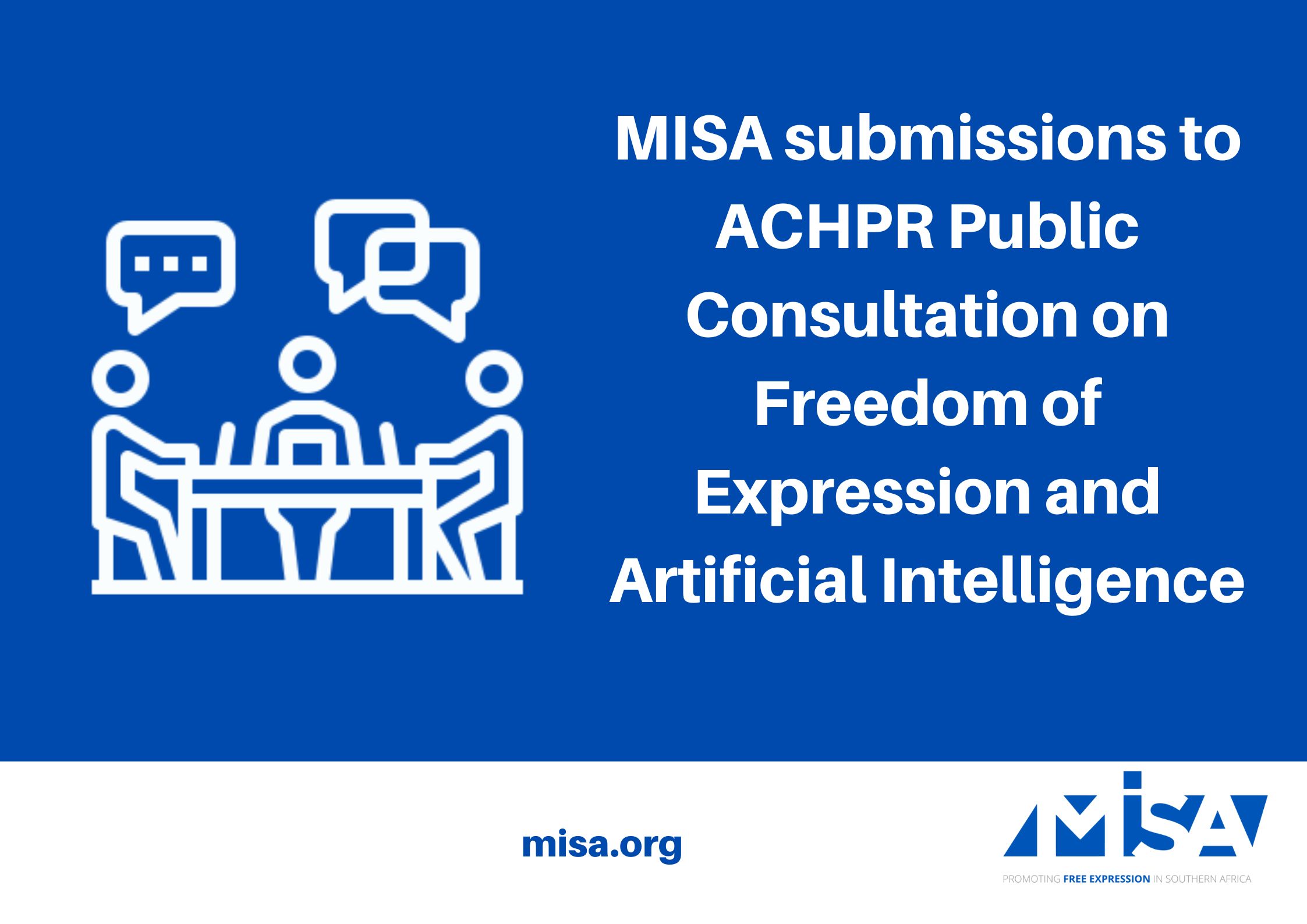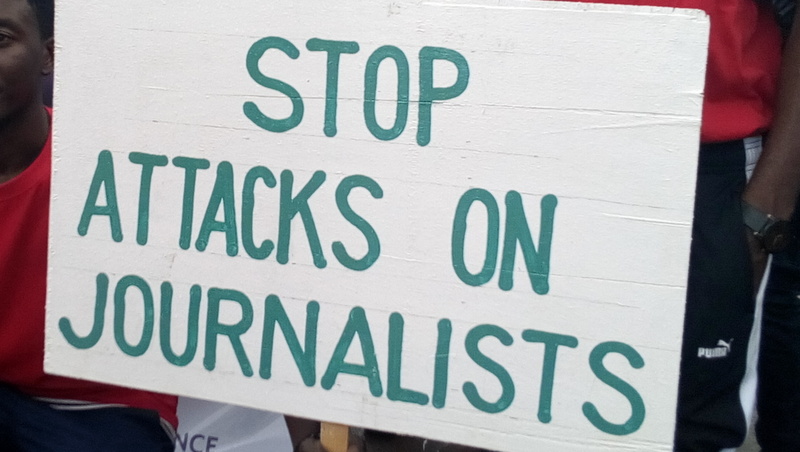On 23 July 2025, MISA electronically submitted its insights to the African Commission on Human and Peoples’ Rights (ACHPR) Public Consultation on Freedom of Expression and Artificial Intelligence (AI).
In its submissions, MISA emphasised the need for governments to establish AI legal frameworks rooted in international human rights law, incorporating transparency, accountability, data security, and clear redress mechanisms.
As a key media freedom and digital rights advocate, the organisation recognises that the transformative power of Artificial Intelligence will directly shape the future of journalism, alter the information landscape, and impact the right to freedom of expression.
To safeguard fundamental human rights, essential safeguards and measures, including mandated human oversight, must be incorporated in the entire life cycle of all AI systems that impact these rights.
In its submissions, MISA highlighted key concerns, including, among others:
- Generative Artificial Intelligence (GenAI) has amplified misinformation, blurring the lines between truth and fiction. There is a risk that AI may influence editorial independence or journalistic decisions.
- Deepfakes can be used for political manipulation, character assassination, or to incite violence.
- The digital divide and resource gaps remain significant challenges in most African countries, where a lack of affordable and reliable internet connectivity hinders citizens from realising the full potential of emerging technologies.
- Most AI systems currently in use arepredominantly trained on Western datasets, which inherently carry biases that often lead to discrimination against specific segments of African populations and misrepresent African contexts.
- The potential for State control and censorship. This can lead to increased surveillance (e.g., facial recognition), social media monitoring to track journalists and ordinary citizens, which often results in self-censorship.
- The dominance of big tech companies, which control most AI models, leads to the decline of smaller media outlets. The monetisation and exploitation of data by these companies often reflect biases or commercial interests embedded in the AI models. This, in turn, affects market dynamics by creating economic dependencies. Media organisations become economically and structurally reliant on these platforms for traffic and advertising revenue, restricting their ability to maintain editorial independence.
- Most international AI instruments are non-binding in nature and fail to incorporate the perspectives of the Global South. This results in challenges in translating AI principles into practical policies.
Way forward
Moving forward, governments must establish AI legal frameworks grounded in international human rights law, incorporating transparency, accountability, data security, and clear mechanisms for redress.
AI systems must be designed inclusively, with input from various stakeholders, including marginalised groups, people with disabilities, and other underrepresented voices. The media industry should also develop its own AI Policy or Code of Ethics, incorporating key best practices and clearly labelling all content that has been generated, augmented, or significantly altered by AI.
AI-generated content, particularly for news and informational purposes, must go through rigorous human review and editorial approval before publication.
AI systems should not influence editorial independence or journalistic decisions by making critical choices about content publication or editorial direction.
Strong policies should be implemented to close the digital gap, ensuring affordable and accessible internet , and enhancing digital literacy for marginalised communities.
There is a need to increase accountability on the Utilisation of Universal Service Funds to stimulate infrastructure development. This will bridge and close the digital divide between urban and rural communities, serving as the backbone for localised AI development and deployment.
Finally, regional and global coordination is vital to harmonise AI development and translate AI principles into practical, enforceable policies through multi-stakeholder partnerships.
MISA Communique









